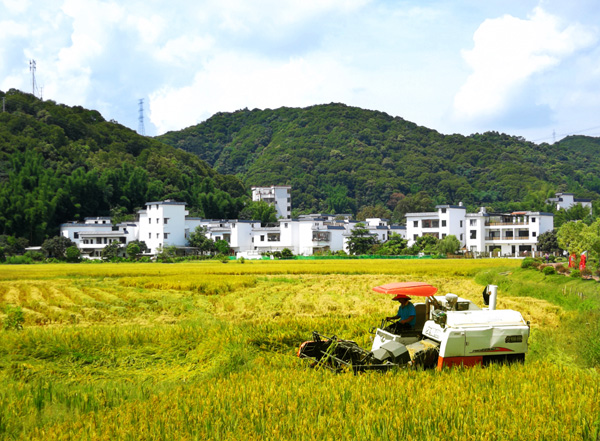Colleges dedicate expert resources to spur rural vitalization
Pest control is a common concern to farmers worldwide, yet in Zijin county of Heyuan, Guangdong province, tea green leafhopper insects turn out be a favorite.
As one of China's top 100 counties for tea production, Zijin in South China has a history of growing tea that can be traced back nearly 700 years, according to the county's historical records.
The county has risen to fame in recent years for chancha tea, made using leaves bitten by tea green leafhoppers.
The tiny green-winged insects insert their mosquito-like mouths into the newly sprouted tea buds to suck their sap, affecting tea growth and resulting in a sharp decrease in yields.
However, farmers soon found that the tea made using leafhopper-bitten leaves has a unique flavor and aroma. It has gained in popularity in the market, with 500 grams of chancha tea priced at thousands of yuan.
The leafhoppers' bites can trigger a series of immune responses from within tea trees, which adds a honey aroma to the finished tea, experts explained.

A farmer drives a harvester across a field in Guangzhou, Guangdong province. CHINA DAILY
Despite being sought-after in the market, the tea was difficult to produce on a large scale, subject to the biological habits of the tea green leafhopper.
The colleges of plant protection and horticulture at South China Agricultural University worked together to address the technical difficulties in artificial breeding of the tea green leafhopper, helping local farmers increase the yield of chancha tea.
To this end, the university has founded an expert panel covering the entire industry chain of tea tree breeding, cultivation, processing and plant protection. It conducts research on new technologies and focuses on building a comprehensive industry chain support model.
"Thanks to the strong support from the government and the technical assistance from South China Agricultural University, the aroma of tea from Zijin county is spreading further and the local tea farmers are living a sweeter life," said Zhong Tiege, an executive of Qinglinfeng Tea. The company evolved from a farmers' cooperative and is now an enterprise integrating tea planting, processing and sales.
Chancha tea has become a pillar industry in Zijin, with its tea plantations expanding from 1,200 hectares in 2015 to 5,333 hectares in 2023.
County economy
Counties across Guangdong account for approximately 71.7 percent of the province's entire area. In contrast, their combined GDP contributed 12.5 percent of the province's total.
As county economy lagged behind in the province's high-quality development, the Guangdong Committee of the Communist Party of China launched a project in December 2022 to promote rural vitalization and modernization and achieve coordinated rural-urban growth.



 Print
Print Mail
Mail

